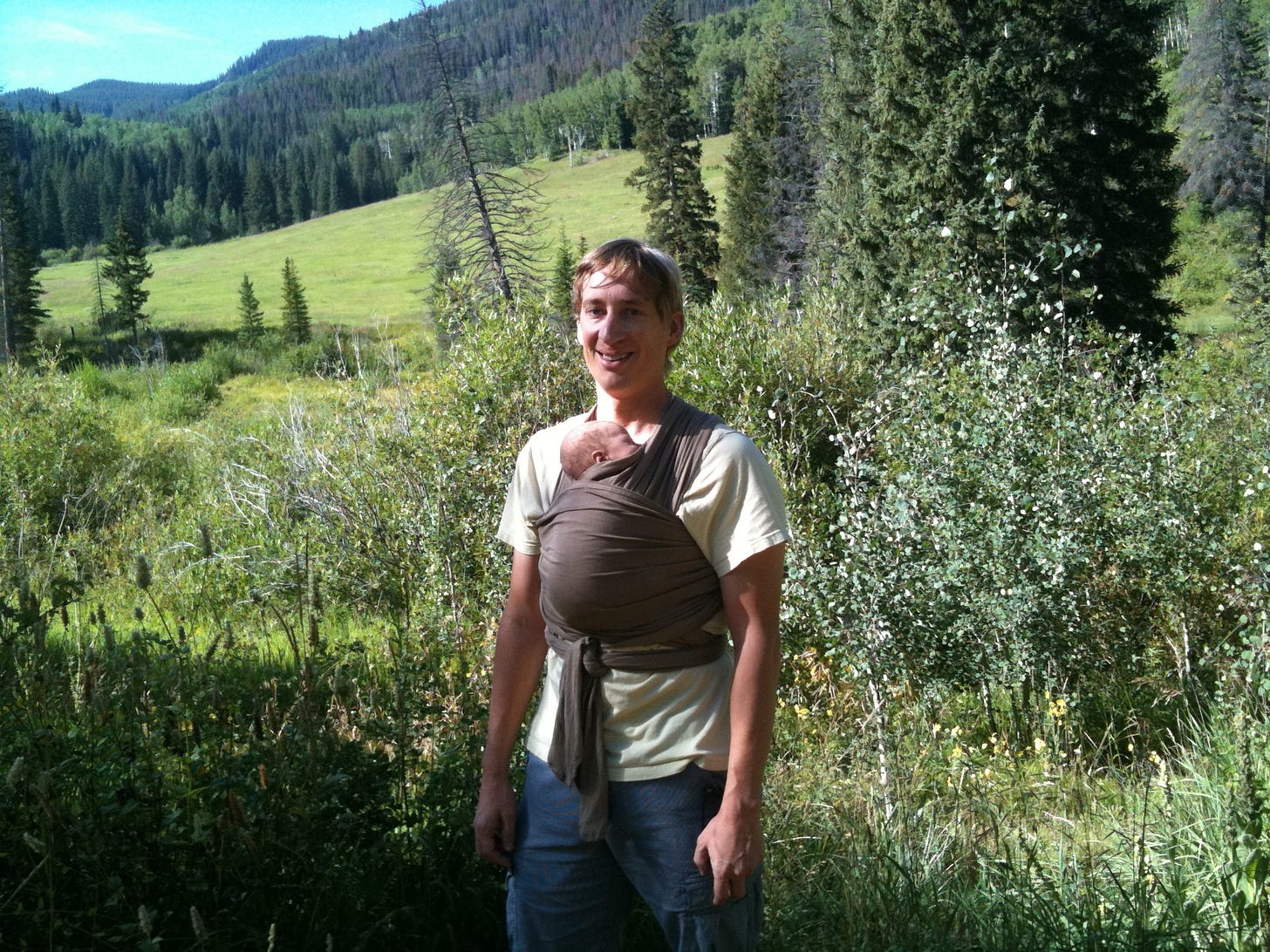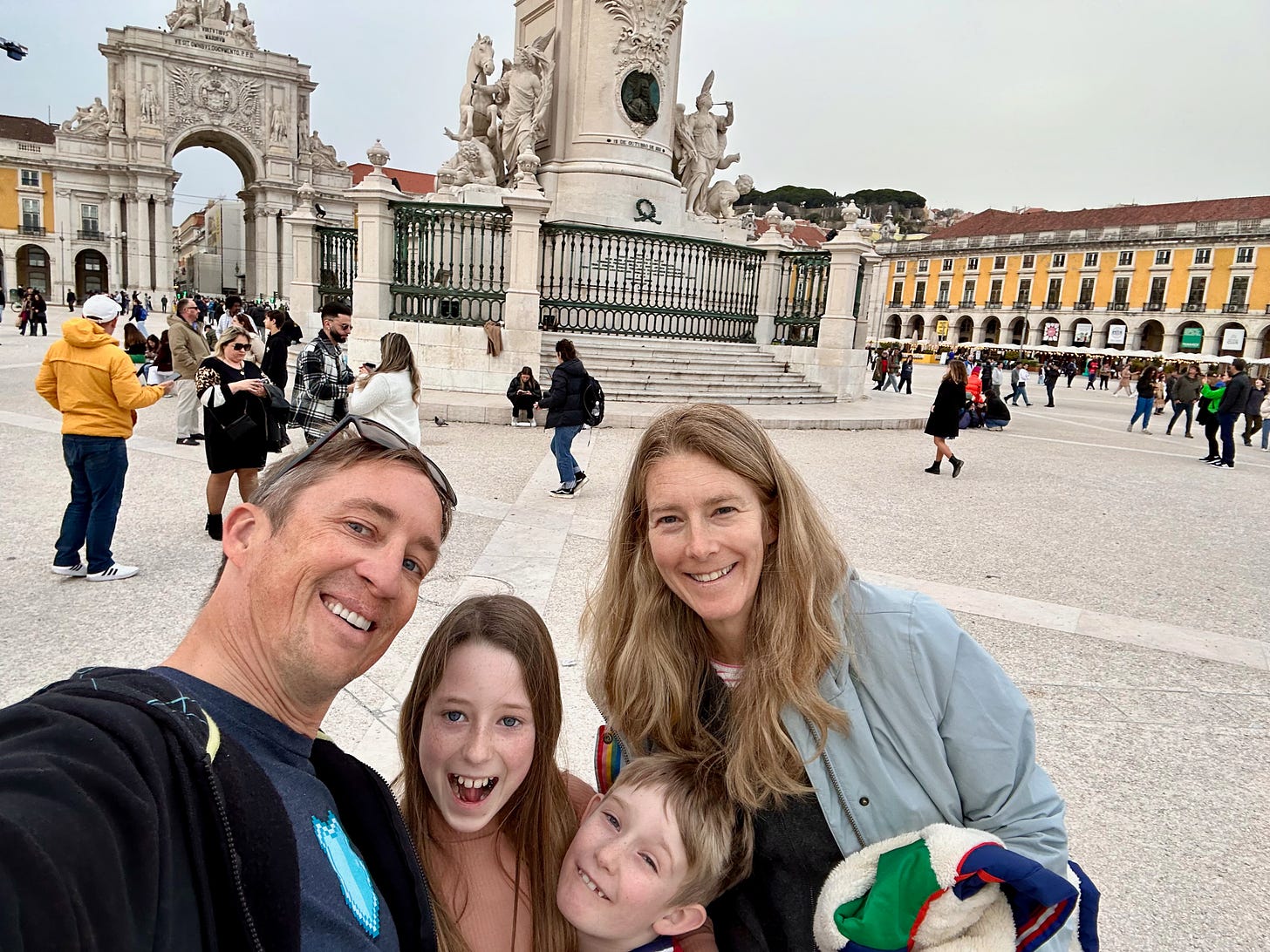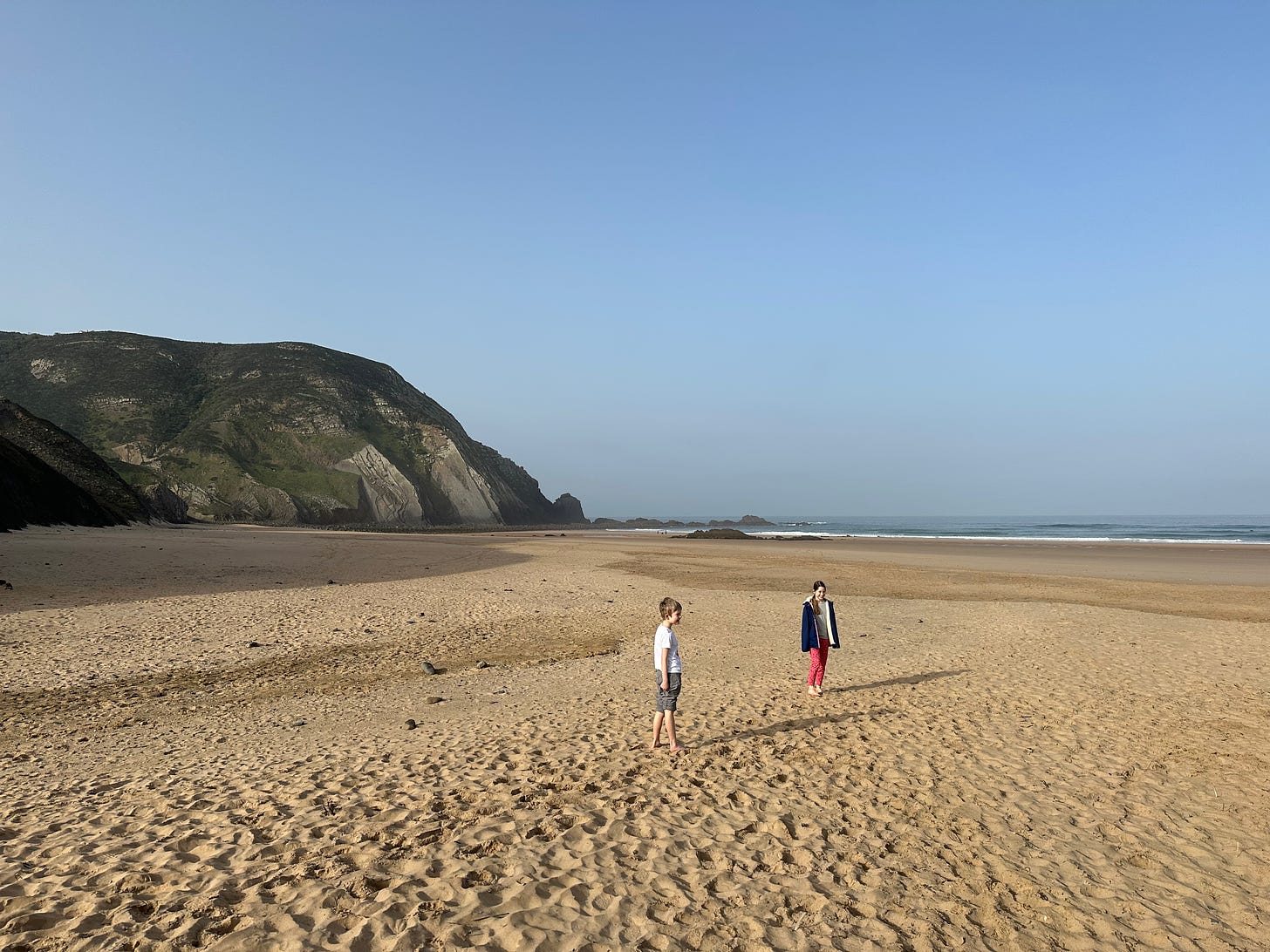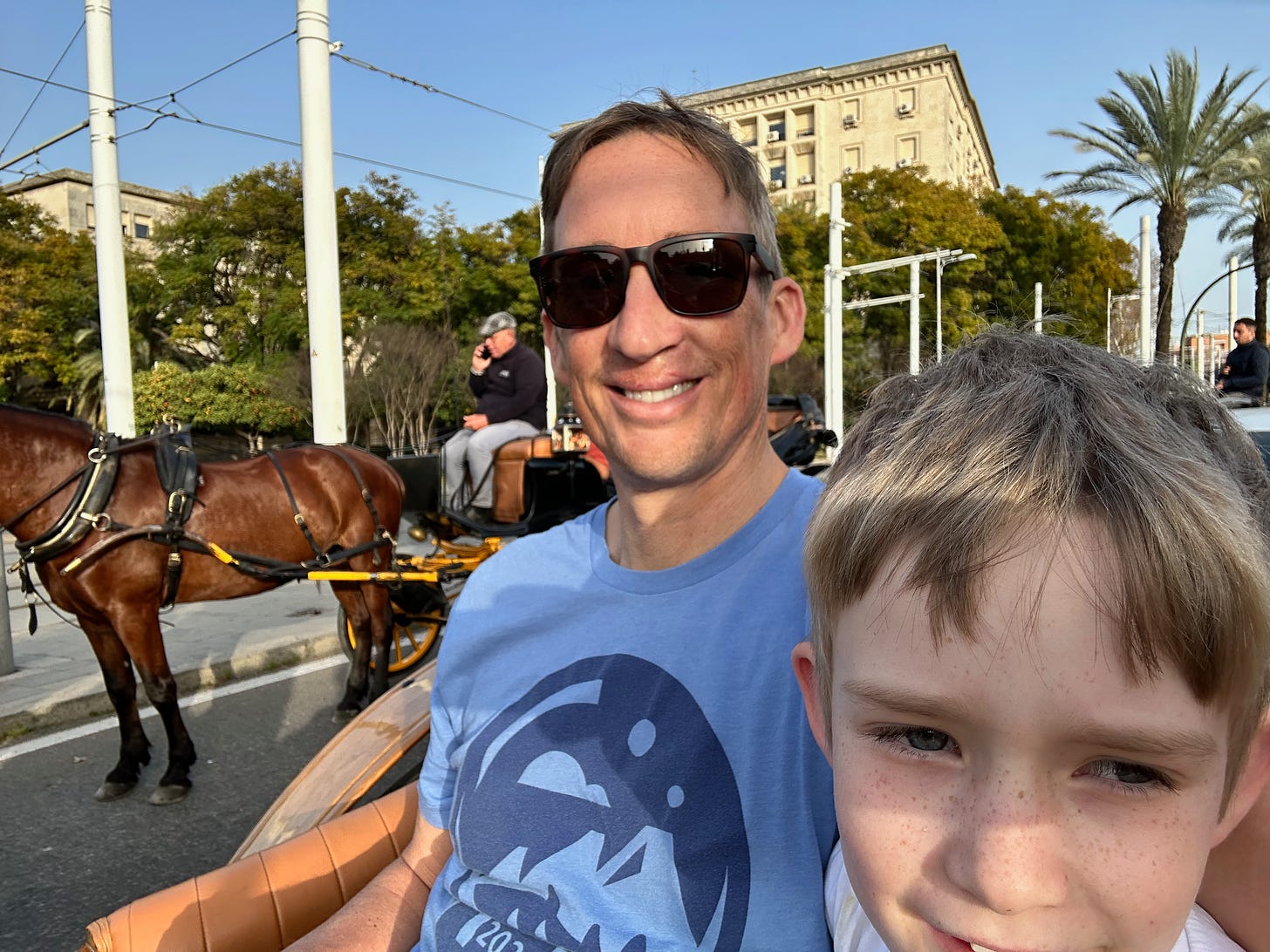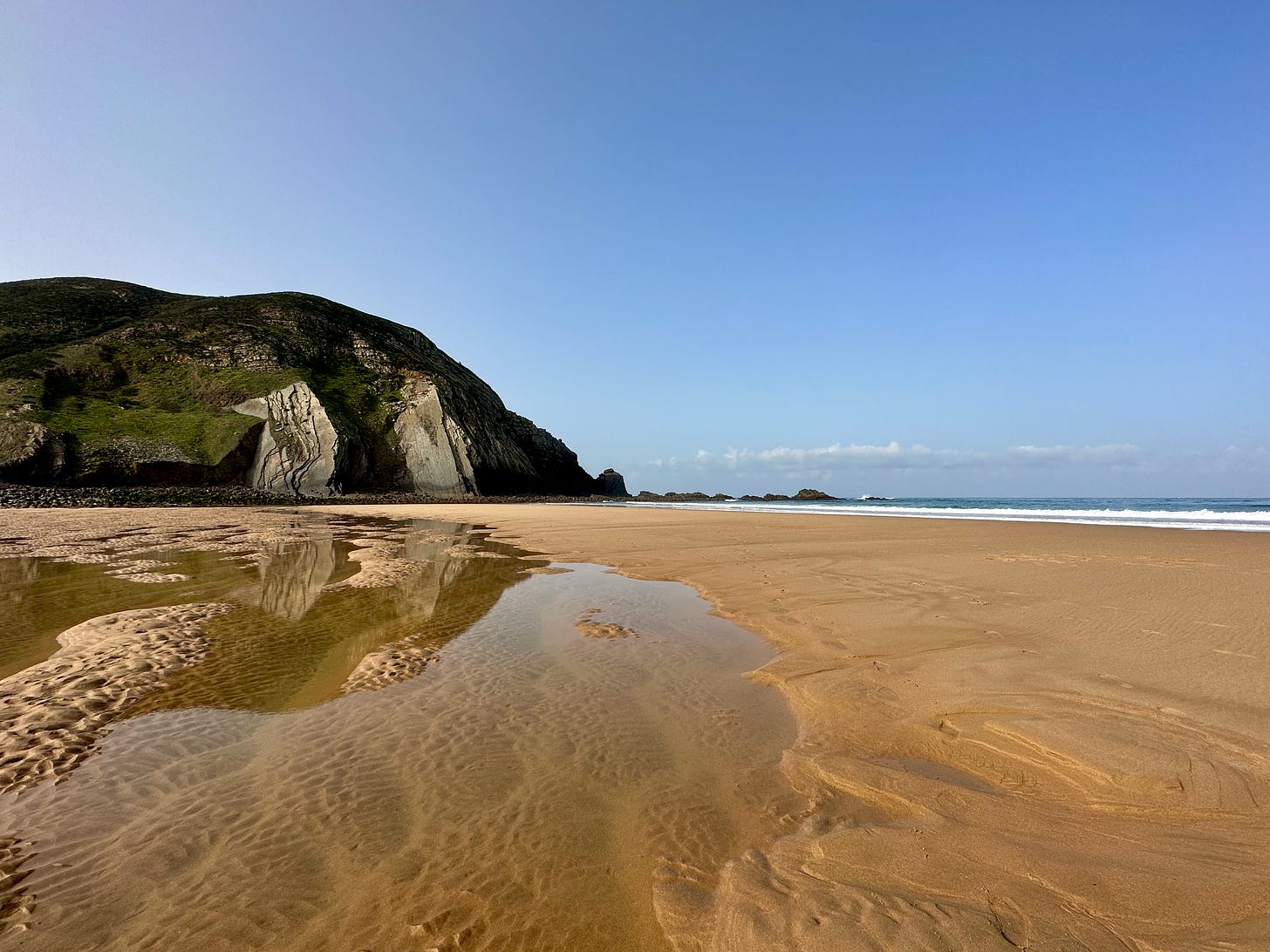Two sides of the 4-hour work week
What happened to two families who read The 4-Hour Work Week in 2007
In 2007 I read The 4-Hour Work Week by Tim Ferriss. It was a mind expanding, life altering book written with a know-it-all energy that both repelled and inspired me.
Near the beginning of the book, Ferriss claims that there is a movement underway of a new type of “rich person” who is free of the burdens of nine-to-five work, can travel the world whenever and wherever they want, and has access to things typically thought to be the domain of the traditionally wealthy.
This idea was intoxicating to me. Kelly and I convinced each other to leave our Colorado lives behind during the year after our wedding and live and travel in South America.
For this to be feasible, I sent out a note to everyone I knew with the subject line “Life update.” In it, I laid out my plan to go live in Uruguay and asked for help finding work for up to 30 hours a week of remote software development. Someone in a leadership position at a startup software company who had also spent some extended stints abroad liked the idea, and took me up on it, and the company that I’ve been running for the past 15 years was born.
In addition to kicking off my own sort-of 4-hour work week (well, 30 hours), the life-update email caused my friend Mariela in Denver to reply that her brothers lived near Uruguay. One in Brazil and the other in Argentina. She said her brother Manuel, who lived in Brazil, was a surfer and I should write to him, so I did.
He told me to come up to Florianópolis during a major surf competition and we could meet, watch the comp, and surf together, so I did.
Manuel and his wife Tamara were so welcoming during my visit. They took me to every great restaurant on the island, and we talked late into the nights about life and culture. We had a great mix of perspectives because I’m from the US, Manuel had lived in both Uruguay and Brazil, and Tamara grew up in Germany.
We also were filled with a new hope for the future because Obama had won the election on the day of my flight to Brazil.
During my visit, Manuel and Tamara talked a lot about how they wanted a life for themselves and their baby daughter that was free of the trappings of capitalism and the drudgery of working long hours. They also wanted to avoid sending their daughter to a traditional school.
I got excited, they were basically telling me they wanted the 4-hour work week! I think I explained the details of the book for like 2 hours. I went into great detail about how they could start a drop-shipping business and do very little work but receive a good income from it. So they did.
Tamara had a been a midwife and loved some of the traditional baby raising techniques that had been lost to “progress". One of the things she particularly loved was baby-wearing with slings and wraps. So between her knowledge of how to design a good wrap, and Manuel’s skill at building websites, they started a business called Sun Kepina Baby Slings, and started drop-shipping super high quality slings all around Brazil. I know they were high quality because we got one, and Alana spent many hours in it when she was born.
I visited Manuel a handful more times in Brazil after that initial meeting, and each time I saw that he and Tamara were living comfortably and relaxed putting just the right amount of effort in their online shop.
Meanwhile, I was working with a goal of growing Kelsus, but also free to set my own hours and live where I wanted. Both of our families were living our interpretations of 4-hour work weeks. Then we mostly lost touch for about 10 years.
I knew from talking to Manuel’s sister that his family had left Brazil to live in Europe, so when we moved to Spain, I got in touch. I told him we live in Vigo, and he told me he lived in the south of Portugal in an area called the Algarve.
He said his family lived in the woods in a place similar to where they lived in Brazil. That place in Brazil was rustic. It was in the jungle next to a lake and had an unmortered brick floor. I stayed two nights in an equally rustic structure next to his and woke up in the middle of the first night, turned on my flashlight, and was greeted by many new friends—frogs, snails, millipedes, and spiders on every surface.
That’s when I knew that Manuel was made out of tougher stuff than me.
Toughness in the face of societal norms has been the throughline of Manuel and his family’s life. When we visited them in the Algarve, first of all, we found that their property was a beautiful orchard and their house was a comfortable, double wide trailer, and not in the same rustic genre as the room-and-a-roof they had in Brazil. But more importantly we heard how they spent the intervening 10 years.
First, they lived with their daughter off the grid in an intentional community deep in the jungle of northern Brazil. Manuel said they had to be a bit careful where they stuck there noses because of snakes and larger creatures. That didn’t stop them from having their second daughter. It wasn’t the creepy crawlies that drove them out. It was the poverty and crime. Their co-op property became a theft target to a local gang and members of their intentional community started to leave.
Manuel and his family also left for Portugal, and they stayed in a caravan for several years. Their family of four lived off the income from their baby sling business and Tamara’s consultative herbal medicine practice.
They found a new like-minded community of people living largely off the grid and homeschooling their children in the south of Portugal, and that’s where they stayed.
There, they discovered a plot of agricultural land that appeared nearly worthless. No building could be built on it because of the agricultural zoning. But Manuel and Tamara are amazing at finding value where others don’t see it. The land they bought contained an old ruin, and they learned about a law in Portugal that would allow them to build on agriculturally zoned land as long as they incorporated the existing ruin into the new building.
A few weeks ago, we went on a pedal-to-the-metal, three day road trip that took us to Lisbon, the Algarve, and Sevilla. That second day in the Algarve between those bustling cities, we saw wide open spaces out our windows. We visited a jaw dropping beach, and we spent an afternoon with Manuel and Tamara.
During our visit, Manuel explained that they’ve started to build a house for themselves using local and sustainable materials while planting fruit and vegetables on their land. All in, I wouldn’t be surprised if they end up with a new beautiful house on a multi-acre property in southern Portugal for less than $100,000 because of their willingness to use their own labor, bartered labor, and the clay in the soil as building material.
And that’s really the thing that is so striking about them and their lives. They are guided by values that keep them connected to their neighbors, close to the earth, and out of the rat race. Many of the decisions they took were inspired by the promise of freedom that they took from The 4-Hour Work Week, but the richness they sought wasn’t about the trappings of wealth but about complete freedom from all of the pressures of modern society.
I can tell that it hasn’t been an easy road, and many times they’ve had to find the gaps in the rules that let them live the way they live—getting out of the public school system in Europe isn’t easy, not having a permanent address for years at a time isn’t easy, finding a way to build a house on “worthless agricultural land” isn’t easy.
But they’re also an inspiration. Their daughters speak five languages and are bursting with energy and happiness. They aren’t on social media, and they don’t bother with shoes. Manuel and Tamara work because they want to, and they don’t work when they don’t want to. They have friends all over the world, and neighbors that depend on them. Their carbon footprint is almost zero. Their trash can isn’t full of plastic crap.
A last thing I can say with confidence is that if you’re at all inspired to join them, you’re surely invited. After I left the Algarve and headed home, Manuel said that he and Tamara talked long into the night about our family and how we had been unsure about whether we should stay longer in Vigo or return to the US. He said, “For all we talked the day you visited us, it seems to us that you would benefit from taking the kids off school, at least for a year.”
Should we do it? Go live off the grid in the Algarve with families from all over Europe? Let our kids run without shoes and learn five languages? It is more than tempting.
—Jon




